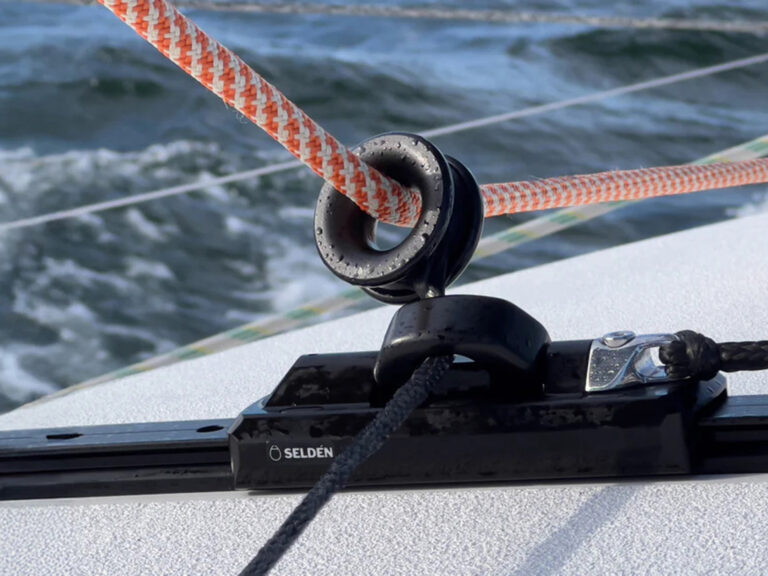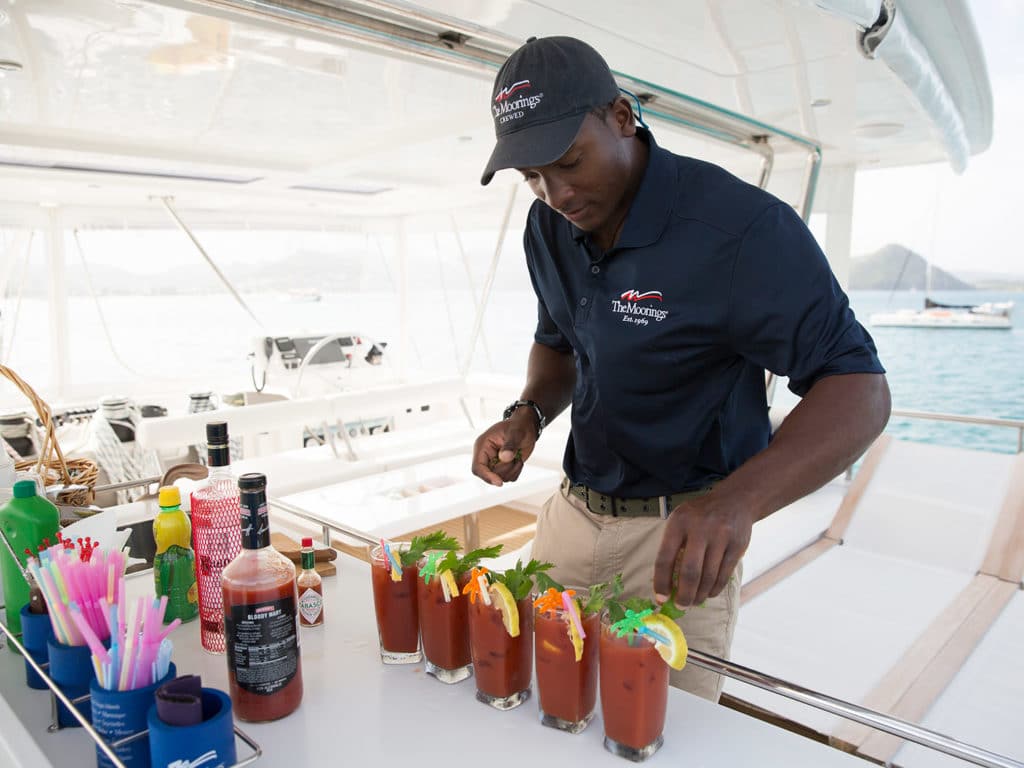
For a completely hassle-free sailing vacation, many experienced sailors opt to charter a yacht with professional crew—usually a captain, plus a first mate who doubles as cook. Especially when sailing in foreign or unfamiliar waters, it lifts responsibility from whomever would otherwise be the designated bareboat captain and mate, frees the group from routine boat chores such as meal prep, dishwashing and boat cleaning, and still allows everyone to participate in the sailing—or not—as they wish.
Unlike chartering a bareboat with only you and your group aboard, when you step aboard a yacht with crew, there are some basic points of etiquette to keep in mind that will make the trip a pleasant one for all. (Some of the following tips apply to any group of people sharing any yacht, anywhere.)
First, think of your captain and crew as your friendly hosts and guides. Many crewed yachts are owner-operated; others have full-time crew. In essence, you’re spending your vacation in their “home,” and they will do their utmost to make you feel welcome. You’ll be encouraged to make yourself fully at home, but you should behave with courtesy. Most yacht crews are educated, professional people who chose the job because they love the sea, sailing and interacting with guests; they shouldn’t be regarded as servants. They are very familiar with the sailing area and, as good hosts, will freely share their local knowledge with guests.
When You Board
When you first arrive at the boat, as on any yacht, it’s polite to ask permission to board. Your crew should be waiting to greet you, but it’s still polite to ask. If you arrive well before the designated starting time, don’t expect to board too early—just stop by to let them know you’ve arrived and where you’ll be waiting in the meantime. If no one is on the boat, don’t go aboard. Find a shady place to wait, and try again closer to boarding time.
RELATED: Quick Guide to Chartering
Remove your street shoes when boarding. Most boats have dedicated shoe baskets or lockers near the boarding area so street shoes can be deposited until it’s time to go ashore again. On the boat, you can go barefoot or wear clean, light-soled boat shoes that haven’t been used on the street.
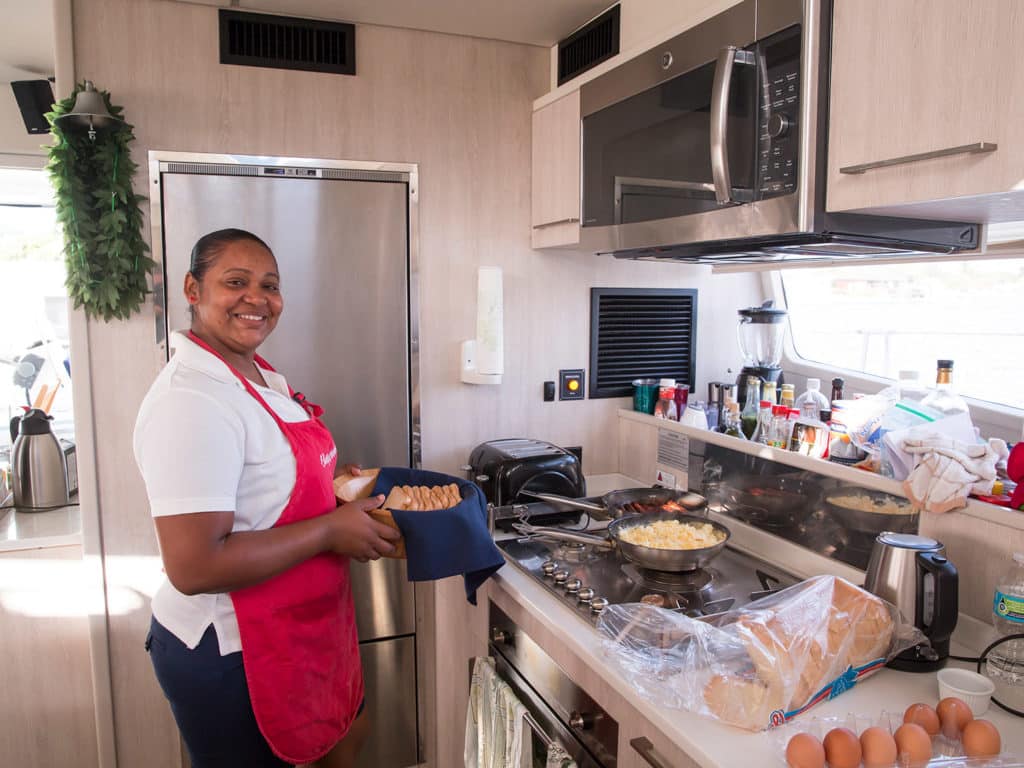
After you board, the crew will show you your cabins, help you stow your luggage, and explain the basics of the ship’s facilities and how to use them. This will cover areas such as:
Heads: As any boat owner knows, all heads are not created equal. Even similar brands have their own idiosyncrasies. Follow the crew’s instructions on how to use them correctly. If in doubt, ask before use.
Water and showers: Charter yachts carry plenty of fresh water for both cooking and daily showers, plus rinse-offs on the stern after swimming, but use water conservatively. Your crew will explain specifics.
AdvertisementLights: Locations of lights and switches, if not obvious, will be pointed out to you. Most charter yachts have significant battery banks. Nonetheless, whether plugged into shore power or operating from the ship’s batteries, follow the standard rule: Use them as you need them, but always turn off lights when not in use.
Electrical outlets: Be aware that locations and dedicated use vary from boat to boat. Certain outlets (such as inverter outlets) might have use restrictions, such as for charging phones or laptops only. Some might not work unless a switch is turned on. Others might work only if the boat is hooked up to shore power or when the generator is running. Your crew will explain which outlets can be used for what, and when. Heed your crew’s directions. If you’re unsure, ask before plugging in.
Before departure, your crew will give you a thorough safety briefing. Listen carefully, and take this seriously. These rules are in place for your comfort and ultimate safety, so respect and abide by them.
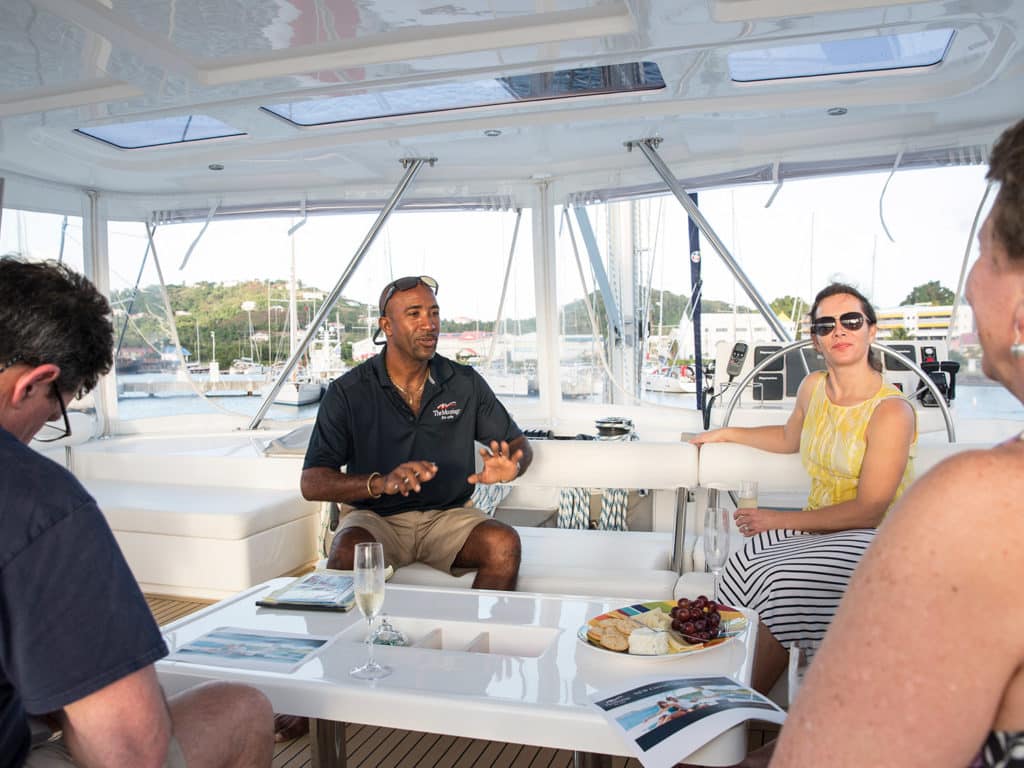
During Your Charter
From your morning coffee to afternoon snorkeling adventures to evening sundowners, the crew will be working hard to ensure you are having a great vacation. To help everything go smoothly, keep these things in mind:
If you’re chartering with kids, remember that professional crews are not babysitters—they have many other daily jobs to do—so don’t expect them to do so. (This is spelled out in many crewed-charter contracts.) Most crews, however, are kid-friendly and might offer to entertain your children for a certain amount of time during the charter. If they offer, you can graciously accept, but don’t abuse the privilege or expect them to do it full time.
When in harbors, be courteous of crews on neighboring boats when socializing in the cockpit early in the morning or late at night. Keep noise to a minimum before 8 a.m. and after 11 p.m. Music and lively conversation carry loudly and easily over the water.
Be Flexible. Your captain and crew are likely very familiar with the local cruising grounds and weather patterns. Trust in their guidance when planning an itinerary, and understand that plans may need to change.
Keep community living space tidy. Your crew will do the bulk of the cleanup, but you can help by keeping personal items such as clothing, towels, hats, sunglasses and toiletries (including sunscreen) out of the main saloon. Stow them in your cabin or in a designated area on deck.
Crewed yachts with cooks usually have special areas, sometimes even a dedicated fridge, where help-yourself-anytime snacks and drinks are kept. Your cook will point these out to you. Before you help yourself to anything in the main galley fridge or lockers, be sure to first ask the cook—he or she likely has plans for it. During meal prep, some cooks welcome help in the galley if guests are so inclined; others do not. If you ask and are politely refused, respect the cook’s wishes. Kick back, relax and stay out of the galley.
Remember that, as on all boats, the captain’s word is law. If weather conditions or other safety or time constraints prevent sailing to a given area, don’t argue the point. The captain and crew want to provide you the best vacation possible and, within reason, cater to your every wish—but they are also ultimately responsible for your safety and the safety of the boat.
During the charter, many brokers suggest that guests treat the captain and crew to dinner ashore on one night. This is entirely optional, but your crew will appreciate the gesture.
At the conclusion of the charter, it’s customary for guests to leave the crew a gratuity of between 5 and 15 percent of the charter fee, based on the level of satisfaction with the crew and the trip. Good crews will never let you see how hard they’re working to take care of your every need, but they work very hard, usually from early morning to late in the evening, so keep that in mind when determining how much to tip.
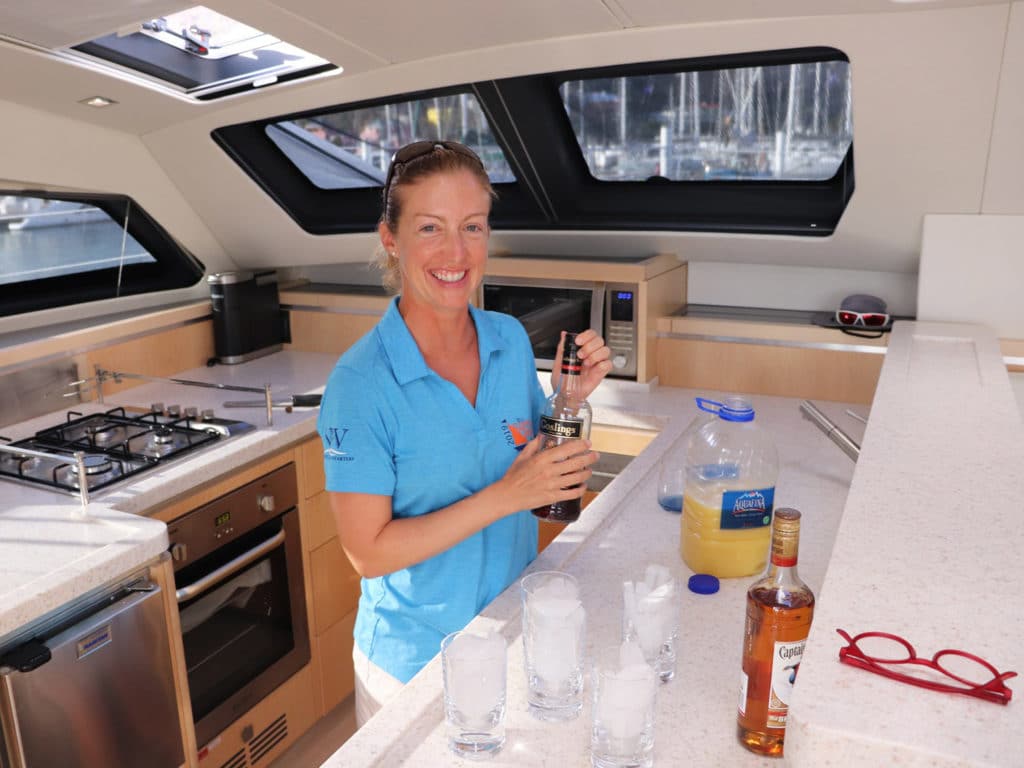
Finally, remember: You’re on vacation! So relax, stay loose, and enjoy not being in charge. Slow down, and leave stringent deadlines behind. Good crews will follow guests’ desired itineraries whenever possible, but if weather makes a certain destination risky, discover the pleasures of a totally unexpected alternative—or simply relax and enjoy a delicious meal, an hors d’oeuvre or a cocktail as you chill out in your beautiful slice of paradise.
Lynda Morris Childress and her husband, Kostas Giokas, sail and charter their Atlantic 70 cutter,_ Stressbuster, _in the Greek Islands. They have welcomed aboard hundreds of happy charter guests during their 16 years of chartering.








